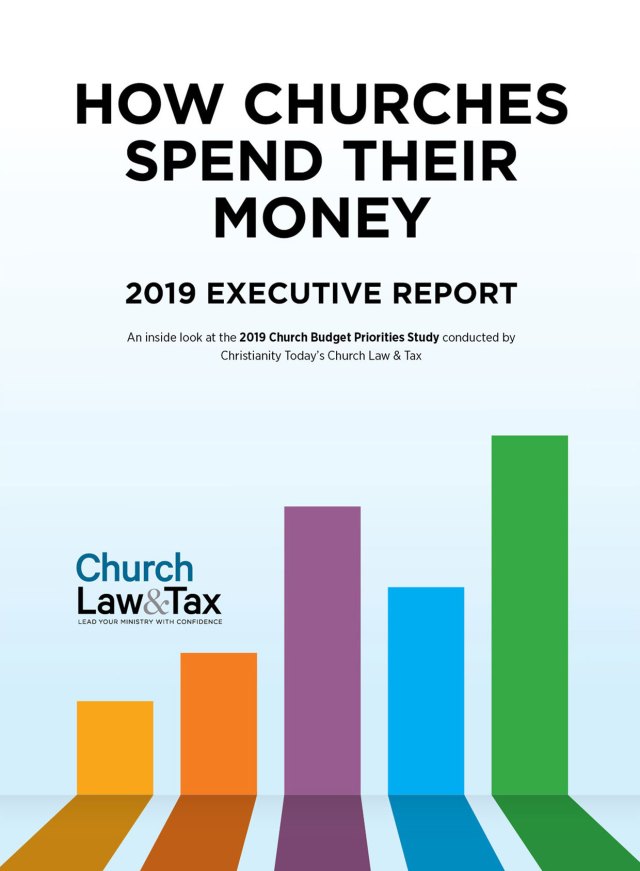Setting compensation for pastors and church staff isn’t just a financial task—it’s a legal and organizational responsibility with distinct challenges. Unlike the for-profit world, churches face unique tax laws, benefit structures, and stewardship expectations.
“Clergy compensation is an animal in and of itself,” said Ben Rhodes, a CPA and past chief financial officer of Faith Assembly of God in Orlando, Florida. “When we have new board members come on, many of them have never even heard of a housing allowance exclusion.”
To help church leaders and financial managers understand these differences, Church Law & Tax spoke with Rhodes and three other experts. Together, they identified five key differences between church and for-profit compensation practices.
1. Tax-Exempt Status Changes the Stakes
Churches are classified as 501(c)(3) organizations, which means they must follow IRS rules regarding reasonable compensation. Paying more than what is considered reasonable can have serious consequences.
What’s Different?
In the for-profit sector:
- If compensation is too high, the IRS disallows a tax deduction.
- The business pays more tax but continues operations.
In the church world:
- The church could lose its tax-exempt status.
- The person receiving excessive pay may:
- Owe 25 percent of the excess amount to the IRS.
- Face an additional 200-percent penalty if not corrected.
- Board members who approved the payment may personally owe 10 percent of the excessive amount.
“Reasonable compensation is defined as what other similar organizations pay similarly qualified people to perform similar work,” explained Mike Batts, CPA, managing partner of Batts Morrison Wales & Lee, and a senior editorial advisor for Church Law & Tax.
2. Housing Allowances Are a Unique Tax Benefit
Ministers are eligible for parsonage or housing allowances—a benefit rarely found in other sectors.
Two Common Approaches:
1. Parsonage (church-owned housing):
- The church provides housing as part of compensation.
- Ministers do not report the rental value or utility costs as income, as long as they stay within fair rental value.
2. Housing Allowance (minister-owned or rented home):
- Part of a minister’s salary is designated for housing expenses.
- That portion is exempt from federal income tax, if:
- It is used for actual housing costs.
- It does not exceed the home’s fair rental value plus utilities.
Caution:
- Long-term parsonage living can prevent pastors from building equity.
- Some churches offer equity allowances by contributing to a retirement fund the minister can use later to buy a home.
“Funding the retirement plan does not create current taxable income,” said Elaine Sommerville, a CPA and senior editorial advisor for Church Law & Tax. “And certain retirement plans may designate a portion of the payment as a housing allowance during retirement.”
✅ Best Practice: The housing allowance should be approved in writing, and set before the payment is made.
➡️ See Chapter 6 of the Church & Clergy Tax Guide for more.
3. 403(b) Retirement Plans Offer Flexibility
Churches can offer 403(b) and 403(b)(9) retirement plans, which come with advantages not found in for-profit retirement programs.
Benefits of 403(b)(9) Plans:
- Allow faith-based investments aligned with church values.
- Can pay annuity-style benefits directly from the plan.
More Flexibility:
- Churches may continue contributing up to five years after employment ends, said Danny Miller, an attorney and Church Law & Tax contributor.
- Ministers may receive retirement benefits that qualify for housing allowance exclusions.
- Churches may discriminate contributions, meaning they can contribute:
- Only for certain employees (e.g., pastors),
- In varying amounts.
“For-profit plans generally have strict nondiscrimination requirements,” Sommerville noted.
➡️ See Chapter 10 of the Church & Clergy Tax Guide for more.
4. Social Security: Ministers Are Self-Employed
Unlike typical employees, ministers are considered self-employed for Social Security purposes.
What That Means:
- This rule is based on IRS Code Section 1402(c).
- Ministers pay both the employer (7.65 percent) and employee (7.65 percent) portions of Social Security as self-employed (SECA taxes).
- They are not subject to FICA withholding by the church.
- Most ministers still are employees for federal income tax reporting purposes.
- Ministers report their income taxes as employees and receive a Form W-2 from their church.
“The compensation paid to a minister—for ministerial duties—is a trade or business subject to self-employment tax,” Sommerville said.
Opting Out:
Ministers may permanently opt out of Social Security if:
- They object to the program based on conscience.
- They file the required paperwork within their first two years of ministry.
⚠️ Opting out should be considered carefully and only after consulting with a financial expert.
➡️ See Chapter 9 of the Church & Clergy Tax Guide for more.
5. Healthcare Options Are Limited—but Evolving
Health insurance remains a challenge for smaller churches. One emerging solution is the QSEHRA (Qualified Small Employer Health Reimbursement Arrangement). Another is the ICHRA (Individual Coverage Health Reimbursement Arrangement).
What are QSEHRA and ICHRA?
A QSEHRA is available to employers with fewer than 50 full-time employees. Therefore, it:
- Must be offered equally to all eligible employees.
- Is fully funded by the employer (no salary reductions).
- Reimburses employees for medical expenses (after proof of minimum coverage).
- Has annual dollar limits on reimbursements.
An ICHRA allows many employers to reimburse employees for some or all of the premium expenses incurred for an individual health insurance policy. They will also allow employers to pay the employees’ individual health insurance premiums.
Important Warnings:
- Churches cannot limit QSEHRAs to ministers only.
- Many churches mistakenly reimburse insurance premiums without establishing a proper QSEHRA.
“A QSEHRA will not work for every church,” said Miller. “And it must follow strict requirements.”
Also, “you cannot offer an ICHRA to any employee to whom you offer a traditional group health plan,” notes Richard Hammar, attorney and senior editor of Church Law & Tax. “However, you can decide to offer an ICHRA to certain classes of employees and a traditional group health plan (or no coverage) to other classes of employees.”
Other Healthcare Options:
- Denominational plans (may be required or optional).
- Health care sharing ministries like MediShare.
“Some smaller churches are choosing co-op plans like MediShare,” added Rhodes.
Final Thoughts
Understanding these five key differences helps church leaders:
- Stay compliant with IRS rules
- Create fair and competitive compensation packages
- Understand the benefits and limitations of parsonage and housing allowances
- Research ways to help your minister prepare and save for retirement
- Consider ways to provide for health care coverage
Are you a financial manager or board member navigating clergy compensation? Lean on expert advice and reference trusted resources like the Church & Clergy Tax Guide.
We’ve used a combination of AI and human review to make this content easier to read and understand.





